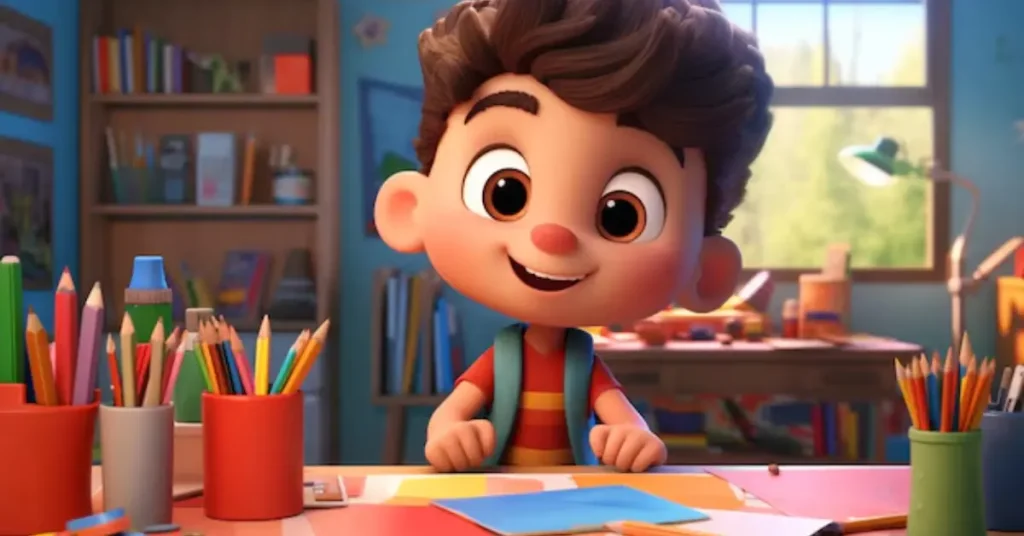A character analysis is the close assessment of the personality, the drives, the profile of a character in a story. What is more, knowing a character inside out contributes to the creation of the realistic and engaging personalities of heroes, who can become real for those who read the book or watch the movie. In fiction, in particular, this method is very important because characters are central to stories and logically consistent figures are what the audience sees on screen.
It is almost impossible to overemphasize the role that character study plays in the course of any narrative, especially in the context of the novel at hand. The tragedy arises from the development of a character; only then a story has meaning, feelings, and a touch of reality. In depth character study allows writers to tell the stories that will both captivate the audience and speak to them and therefore make the story special.
The Impact of Character Study on Fictional Worlds
Perhaps one of the greatest strengths of a character study is that it can improve on the narrative factor of a story. This is why when characters are well worked and well built they come to life and render a reality to the made-up world. The audience tends to be engaged because the viewer wants a figure to succeed, suffer or simply feel something for the character. This is something that makes the story interesting and memorable, as long as the reader can feel what the characters feel.
For example, let us depict a familiar figure such as a character from Harry Potter. J. K. Rowling’s portrayal of Harry from his childhood amid traumas to his developing akin to responsibility keeps the readers emotionally invested in his character and the actions in this series. This strong relation between the character and the audience is something that has made Harry Potter loved all over the world.
How to Conduct an Effective Character Study
They discovered that to achieve a successful character study, there are what are called the character ‘milestones’, which are the areas of the character’s life a writer has to examine in order to develop a full character. This is where the character’s life story, their temperament, their objectives, their phobias, and their relationship to other cast members is developed. However, a good characterization also puts into perspective the manner in which the character transforms in the course of the events. These changes are also known as character arcs and are very important in construction of the interesting story. Also Study

Character Background: It becomes crucial to fully comprehend a character’s history in order to have knowledge on the fact that they have to act specifically in a certain manner in the current time setting. For instance, if male player character is illustrated as coming from an environment where he was raised in poverty he is likely to look at things differently than a male player character raised in comfort in the lap of luxury.
Personality Traits: Each and every character that should appear in the play should be individualistic. Introverts or extroverts? What kind of attitudes do they have, are they optimist or are they pessimists? They will shape their behavior in response to occurrences in the story.
Goals and Motivations: What are the goals of the character? What motivates them into operation? Knowing these aspects of a character contributes positively towards developing the notions of the character’s plot with relative ease and in a linear manner.
Fears and Weaknesses: Each character has the imperfection whether it is minor or major in the play. Defining a character’s fears and weaknesses contributes to his or her creation to be believable. It also engulfs ingredients for conflict and development.
Relationships with Other Characters: A study of a character and his behavior in interaction with other characters is significant towards understanding the character’s personality and hisEthical system. Positive or negative relationships can be used to advance the plot with special loads added to the characters.
Why Story Actually Requires Character Arc
A character arc therefore describes the growth, development or change of character in the course of the story. This change is often as a result of the character’s experience and vital tests that he or she undergoes. A good character arc allows for an engaging story, and gives the viewers a sense of satisfaction at the end.

For instance, in the novel “A Christmas Carol” by Charles Dickens, you observe the process of the main character’s growth, Ebenezer Scrooge – from a greedy and inhuman person to a kind-hearted and generous man. It is with this transformation that not only does the narrative become gratifying, but also the main topics of the discourse- forgiveness and more importantly- mercy.
The Relationship Between Character Study and World-Building
World-building is also enriched by a thorough character study, which is one more foundational element of storytelling. A character should represent a world which he/she has to exist within, containing personality, beliefs, and problems. For example, in dystopian texts, there is a connection between outside and inside the world, that is, the external environment reflects the characters’ conflict, which gives the work unity and relevance.
What is character study in literature?
A character study is an in-depth examination of a character’s personality, motivations, and development throughout a story. It helps to create more realistic and relatable characters.
Why is character study important in storytelling?
Character studies are important because they add depth to the narrative, making the story more engaging and emotionally resonant for the audience.
How does a character study affect the plot?
A character study can drive the plot by influencing a character’s decisions and actions, which in turn shape the direction and outcome of the story.
Can a character study be used in non-fiction?
Yes, a character study can be used in non-fiction to explore real individuals, providing deeper insights into their behavior, motivations, and impact on events.
What is the difference between a character study and a character sketch?
A character study is a detailed analysis of a character, while a character sketch is a brief description, highlighting only the most essential traits and characteristics.

Conclusion
In conclusion, an in-depth character study is a powerful tool in storytelling that brings fictional worlds to life. By exploring the complexities of a character’s personality, motivations, and development, writers can create narratives that are both engaging and emotionally impactful. A well-executed character study not only enhances the plot but also deepens the audience’s connection to the story, making it a memorable and meaningful experience. Whether you’re writing fiction or non-fiction, a character study is an essential element that can elevate your storytelling to new heights.





